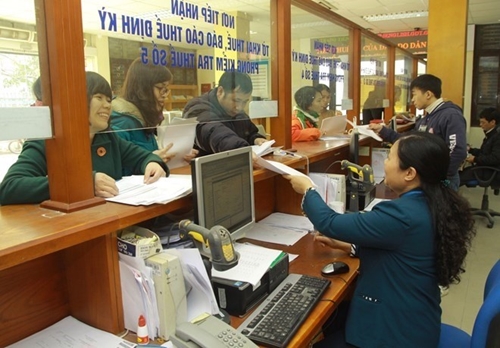December 05, 2018 | 13:31 (GMT+7)
ADB approves loan for financial development in Vietnam
The Asian Development Bank (ADB) has approved a USD 100 million loan to develop Vietnam’s finance sector, aiming to support long-term economic growth and tackle rising income inequality.
ADB Financial Sector Economist Duong Nguyen said that while Vietnam’s economic performance in recent years has been impressive, reforms are still yet to be completed, especially those related to the finance sector.
“In addition, limited financial inclusion could exacerbate the rising income inequality and impact long-term sustainable economic growth. The Financial Sector Development and Inclusion Program will support the Government’s efforts to strengthen financial stability, develop domestic capital markets, and enhance financial inclusion”, she said.
    |
 |
|
A counter at Hanoi’s taxation office |
The program represents a medium to long-term partnership in finance development between ADB and the Government of Vietnam. The program is consistent with the Government’s socio-economic development strategy for 2011–2020, as well as ADB’s strategy for 2030, in addressing poverty and income inequality.
It backs several government reforms to strengthen, deepen, and broaden the outreach of Vietnam’s formal finance sector. These include improvements in the legal and regulatory framework to resolve non-performing loans and restructure weak credit institutions, the creation of an enabling environment for the money market and government bond market development, and policy measures to introduce market-based approaches to financial inclusion through microfinance and financial technology.
ADB is committed to achieving a prosperous, inclusive, resilient, and sustainable Asia Pacific region, while sustaining its efforts to eradicate extreme poverty. Established in 1966, it is owned by 67 members, 48 of which are from the region. In 2017, ADB operations totaled USD 32.2 billion, including USD 11.9 billion in co-financing.
Source: VNA